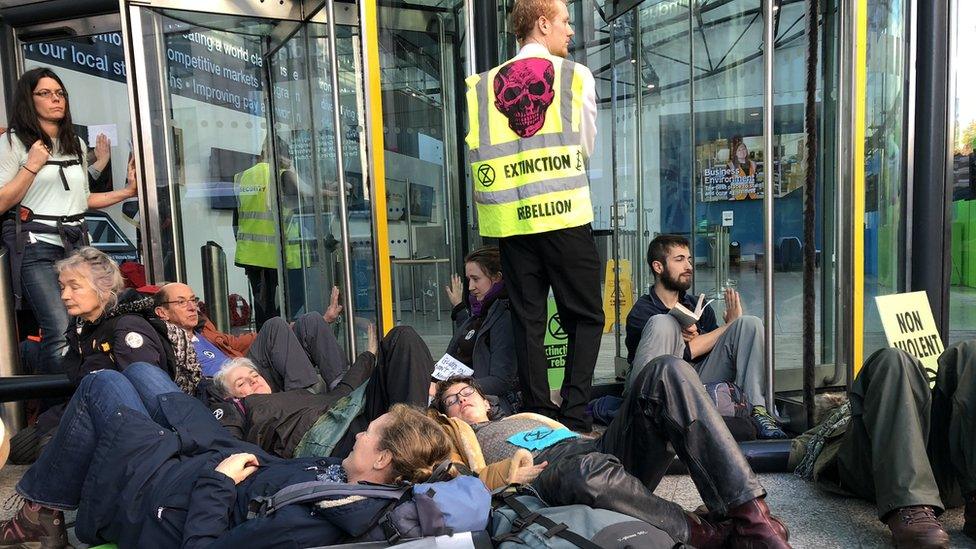Extinction Rebellion protests block London bridges
- Published

Westminster Bridge was one of five crossings blocked by protesters
Protesters blocked off five major bridges in central London as part of a so-called "rebellion day".
Organisers said thousands gathered in central London to demand the government take greater action on climate change.
Demonstrators occupied Southwark, Blackfriars, Waterloo, Westminster and Lambeth bridges for most of the day, after a week of action by campaign group Extinction Rebellion.
They later moved on from the crossings to a rally in Parliament Square.
Large groups of people holding banners began congregating on the five bridges from 10:00 GMT before blocking off the traffic.
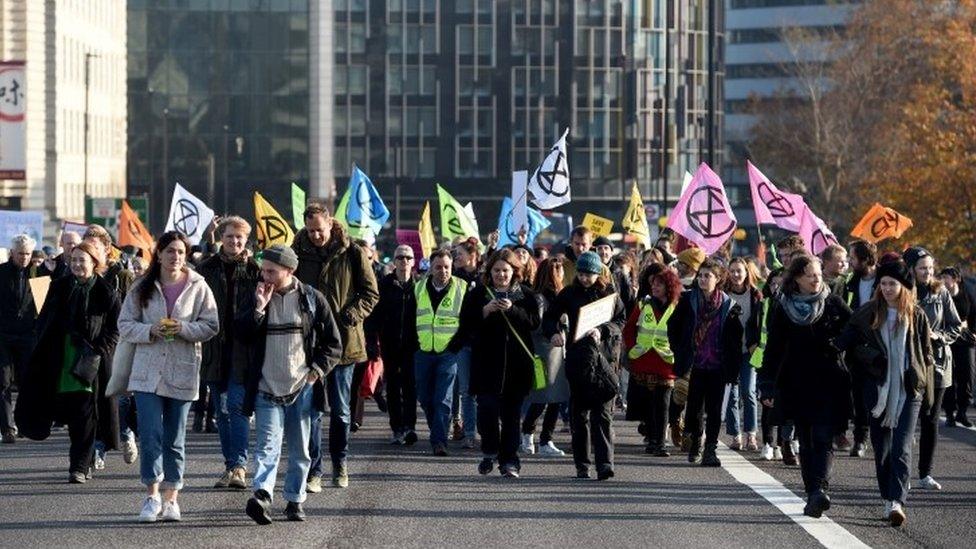
According to Extinction Rebellion, 6,000 people joined the protests
Allow X content?
This article contains content provided by X. We ask for your permission before anything is loaded, as they may be using cookies and other technologies. You may want to read X’s cookie policy, external and privacy policy, external before accepting. To view this content choose ‘accept and continue’.

Tiana Jacout, of Extinction Rebellion, said the blockages were "not a step we take lightly" but "if things continue as is, we face an extinction greater than the one that killed the dinosaurs".
"We have tried marching, and lobbying, and signing petitions. Nothing has brought about the change that is needed."
According to the group, 6,000 people joined the protests and more than 85 were arrested.
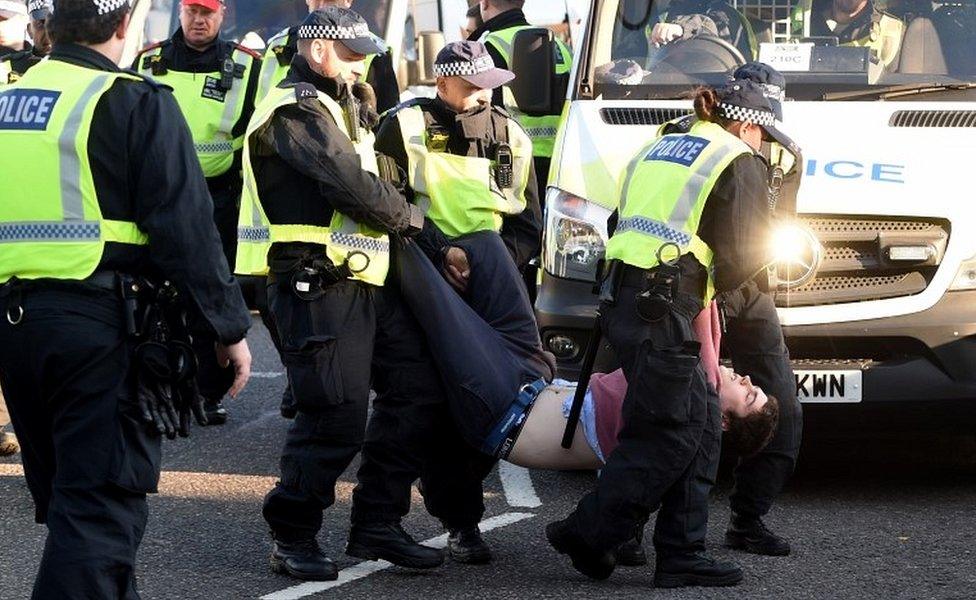
Several people were arrested on Lambeth Bridge
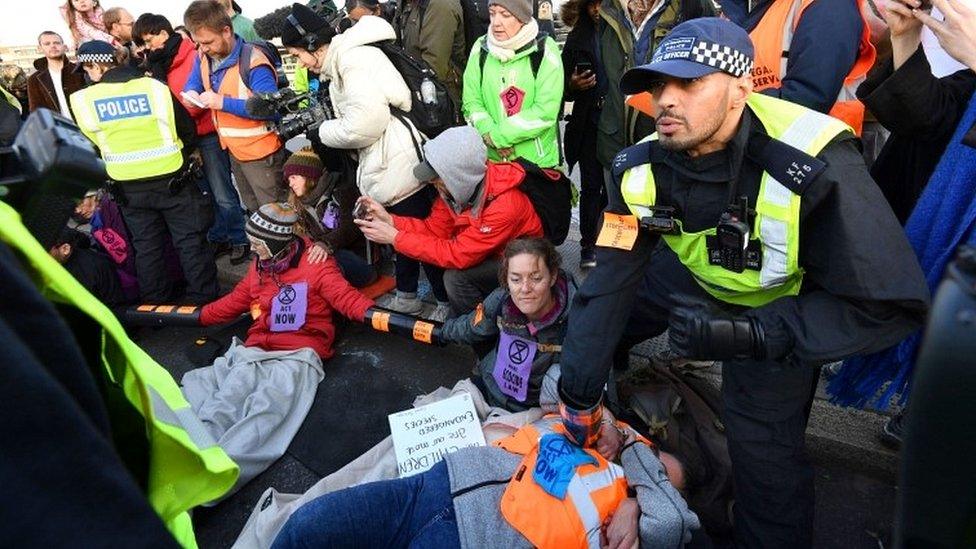
The Met said the protests had caused "significant traffic disruption"
Two protesters on Westminster Bridge, who did not want to be named, told the Press Association they "truthfully believe we're all heading for extinction".
"Climate change is so important, it's coming over so fast and nothing is being done," the women said.
It is believed about 50 people have been arrested for taking part in action over the past week.
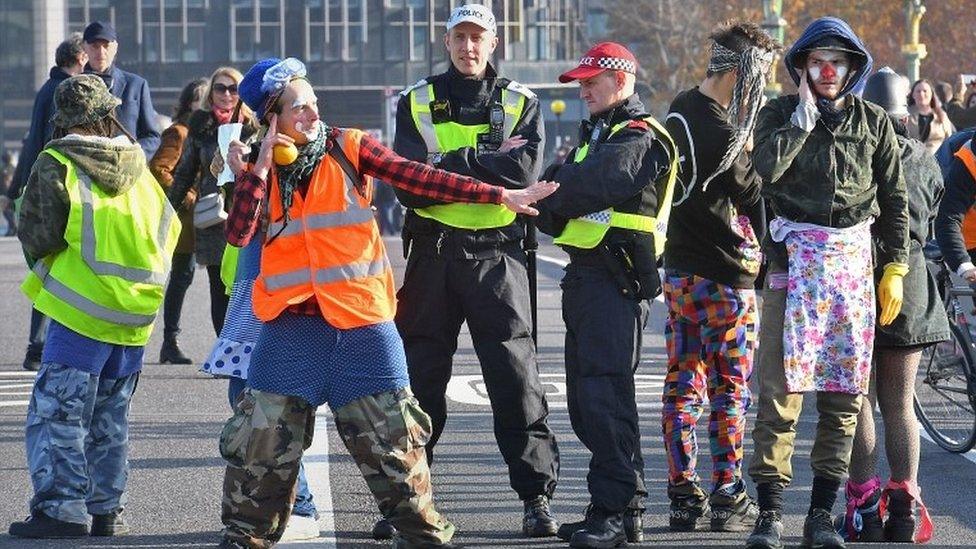
There was a heavy police presence on all five bridges
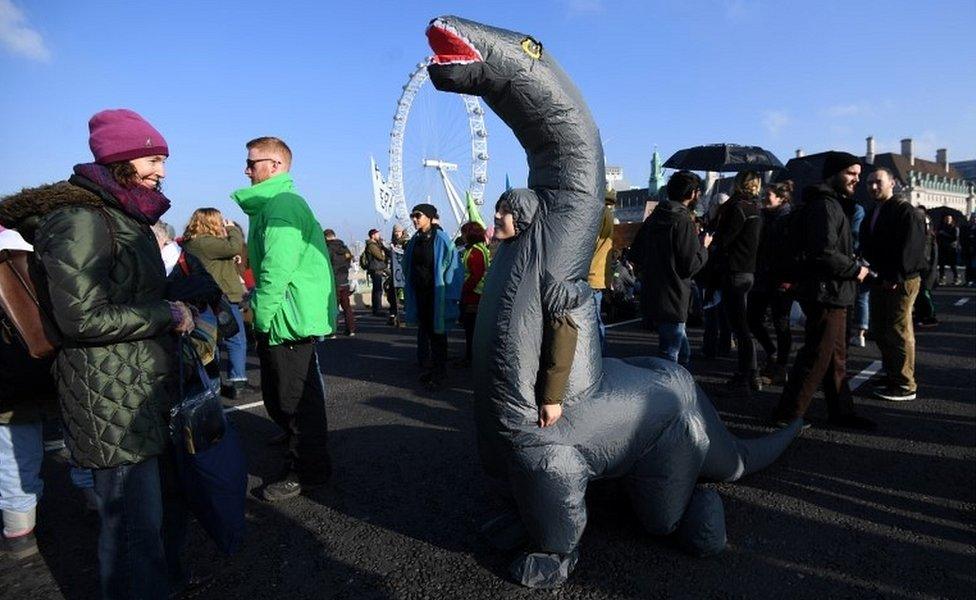
If climate change goes unaddressed "we face an extinction greater than the one that killed the dinosaurs", protesters have said
The Met said the protests had caused "significant traffic disruption" and "hampered" emergency service vehicles from getting across London.
On Wednesday, protesters glued themselves to the gates of Downing Street.
At the start of the week, activists blockaded the UK's energy department by chaining themselves together on the pavement.

Is the protest fair?
By Roger Harrabin, BBC environment analyst
We haven’t seen a British green group quite like this before. It thinks marching with placards has failed, so it’s aiming to make mayhem instead.
But have the protestors picked the right target?
The UK is in the leading pack of nations in cutting the CO2 emissions that are over-heating the planet.
The Climate Change Act locks Britain into reducing greenhouse gases by 80% by 2050, based on 1990 levels.
And the government has kept pace with the step-by-step targets so far, mostly by stopping coal-burning for electricity.
It promises to meet future targets too - although its advisers warn it has to improve by getting more electric cars on the road, and making homes and businesses more energy efficient.
The protesters say the targets will be breached if the government spends £30bn on new roads, encourages fracking and looks to expand aviation even further.
Climate change demands a seismic shift in society, they say. And they’re not seeing that yet.
Follow Roger on Twitter @rharrabin

- Published14 November 2018

- Published12 November 2018
